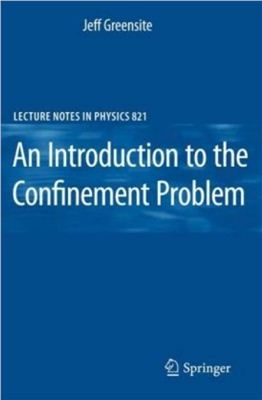Springer-Verlag, Berlin, 2011, 211 pages
This book addresses the confinement problem, which quite generally deals with the behavior of non-abelian gauge theories, and the force which is mediated by gauge fields, at large distances. The word confinement in the context of hadronic physics originally referred to the fact that quarks and gluons appear to be trapped inside mesons and baryons, from which they cannot escape. There are other, and possibly deeper meanings that can be attached to the term, and these will be explored in this book. Although the confinement problem is far from solved, much is now known about the general features of the confining force, and there are a number of very well motivated theories of confinement which are under active investigation. This volume gives a both pedagogical and concise introduction and overview of the main ideas in this field, their attractive features, and, as appropriate, their shortcomings.
This book addresses the confinement problem, which quite generally deals with the behavior of non-abelian gauge theories, and the force which is mediated by gauge fields, at large distances. The word confinement in the context of hadronic physics originally referred to the fact that quarks and gluons appear to be trapped inside mesons and baryons, from which they cannot escape. There are other, and possibly deeper meanings that can be attached to the term, and these will be explored in this book. Although the confinement problem is far from solved, much is now known about the general features of the confining force, and there are a number of very well motivated theories of confinement which are under active investigation. This volume gives a both pedagogical and concise introduction and overview of the main ideas in this field, their attractive features, and, as appropriate, their shortcomings.

